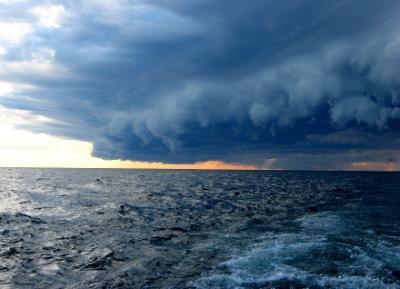
Natural solutions to climate change, such as watershed forest restoration, are an increasingly important method for both ecosystems and people to adapt to the challenges posed by extreme rainfall events and flooding.
Challenge: To reduce climate risk, natural resource managers require up-to-date climate science, interdisciplinary dialogue, and new science-management collaborations to foster adaptation.
Principal Investigator(s):
- Ryan Burner (USGS Upper Midwest Environmental Sciences Center)
- Kristen L Bouska (Upper Midwest Environmental Sciences Center)
- John T Delaney (Upper Midwest Environmental Sciences Center)
- Molly Van Appledorn (Upper Midwest Environmental Sciences Center)
Partners:
- Upper Mississippi River Basin Association
- US Army Corps Climate Preparedness and Resiliency Community of Practice
- NOAA
- U.S. Fish and Wildlife Service
- U.S. Department of Agriculture
- The Nature Conservancy
- Mississippi River Cities and Towns Initiative
Future climate conditions in the Upper Mississippi River Basin are projected to include many more extreme precipitation events. These intense periods of rain can lead to flooding of the Mississippi River itself, as well the small streams and rivers that feed it. This flooding presents a challenge for local communities, farmers, small businesses, river users, and the ecosystems and wildlife in the area. To reduce the damage done by these extreme rainfall events, ‘natural solutions’ are often helpful. This might include preserving forests and grasslands to absorb rainwater before it arrives at streams or restoring wetlands to slow and clean runoff water.
For river and natural resource managers to adapt to future climate by using these natural solutions, however, they require accurate information about the projected increase in extreme rainfall events and the effectiveness and costs of a variety of solutions. To provide this information, researchers must understand the decisions that managers are making and the challenges they face.
In this project, researchers will host a workshop to facilitate knowledge sharing between natural resource managers, climate modelers, and scientists studying natural solutions. Participants will discuss climate projections related to extreme precipitation events in the region, as well as the management implications and decision-making challenges associated with these events. These conversations will cultivate collaborative relationships between managers and researchers to address critical knowledge gaps and improve future management efforts in the Upper Mississippi River Basin.
Read more from the CASC Project Explorer.
